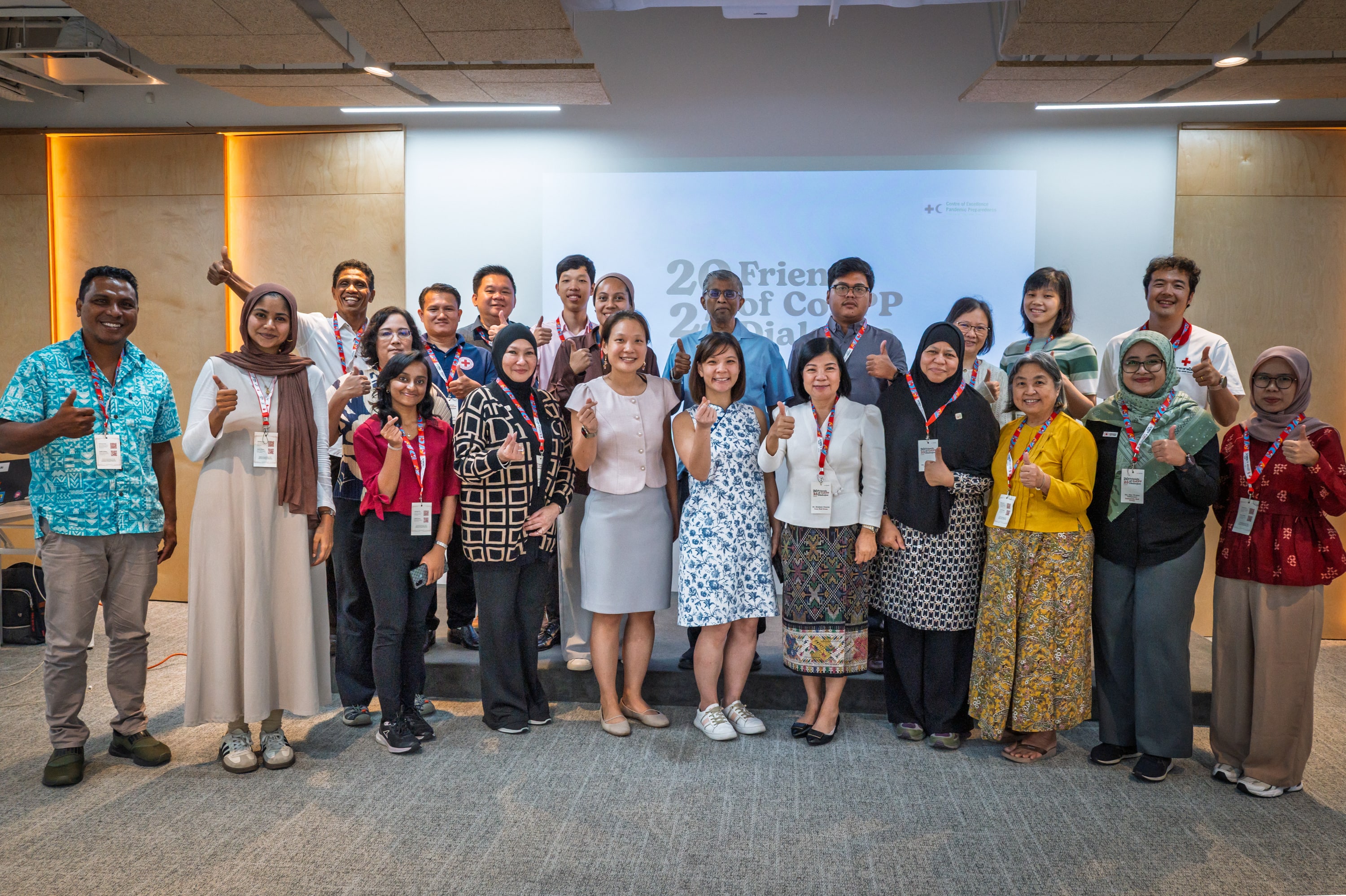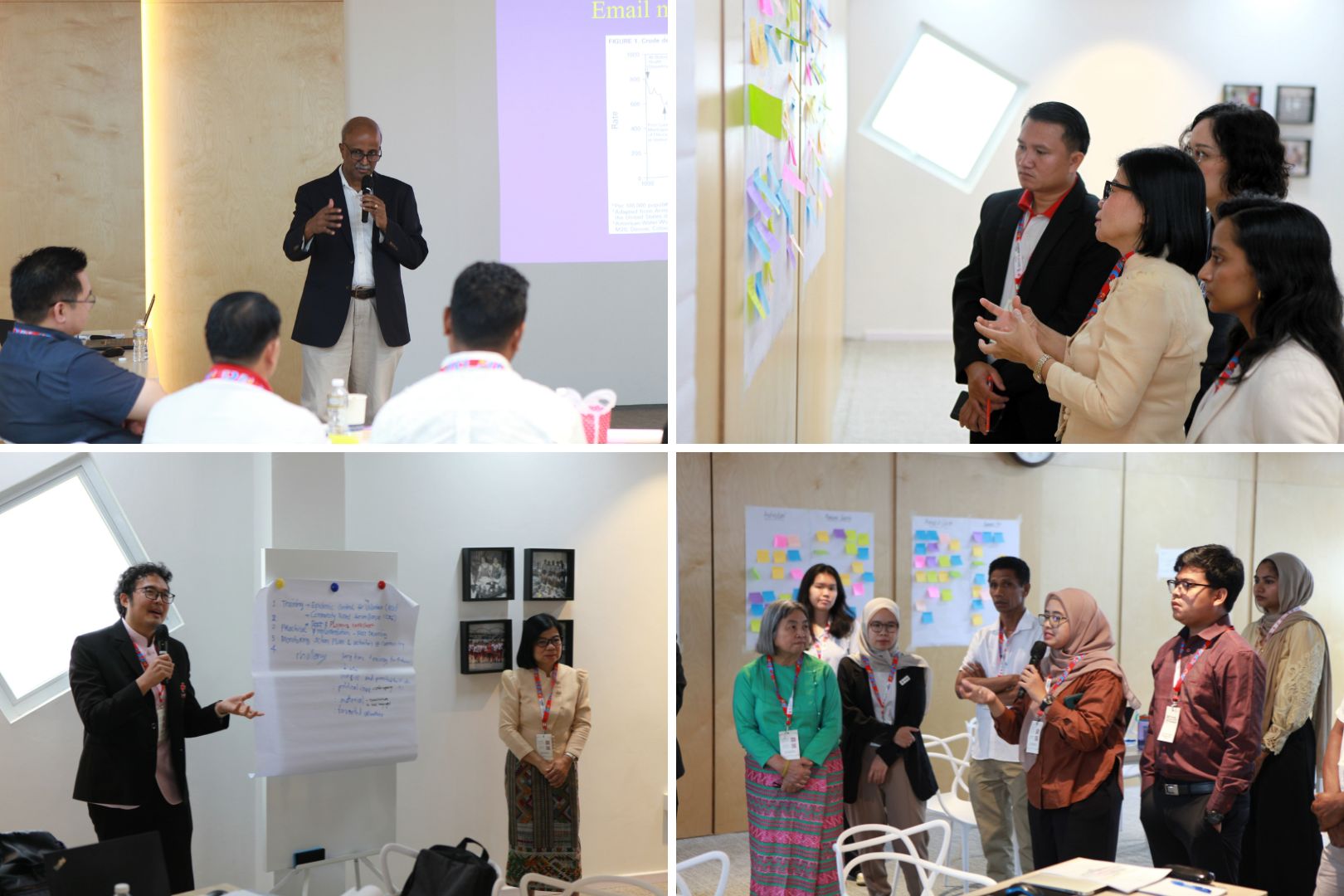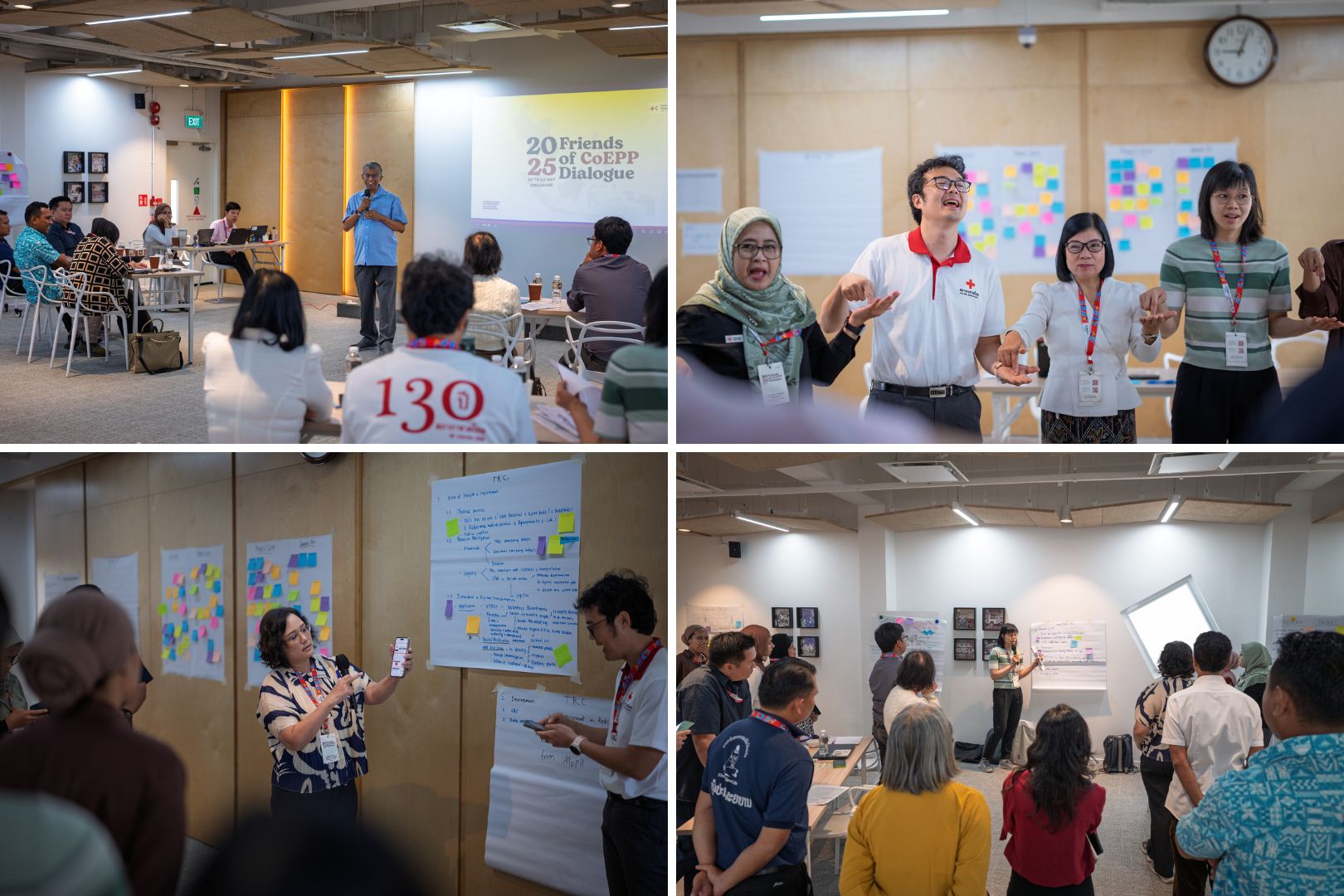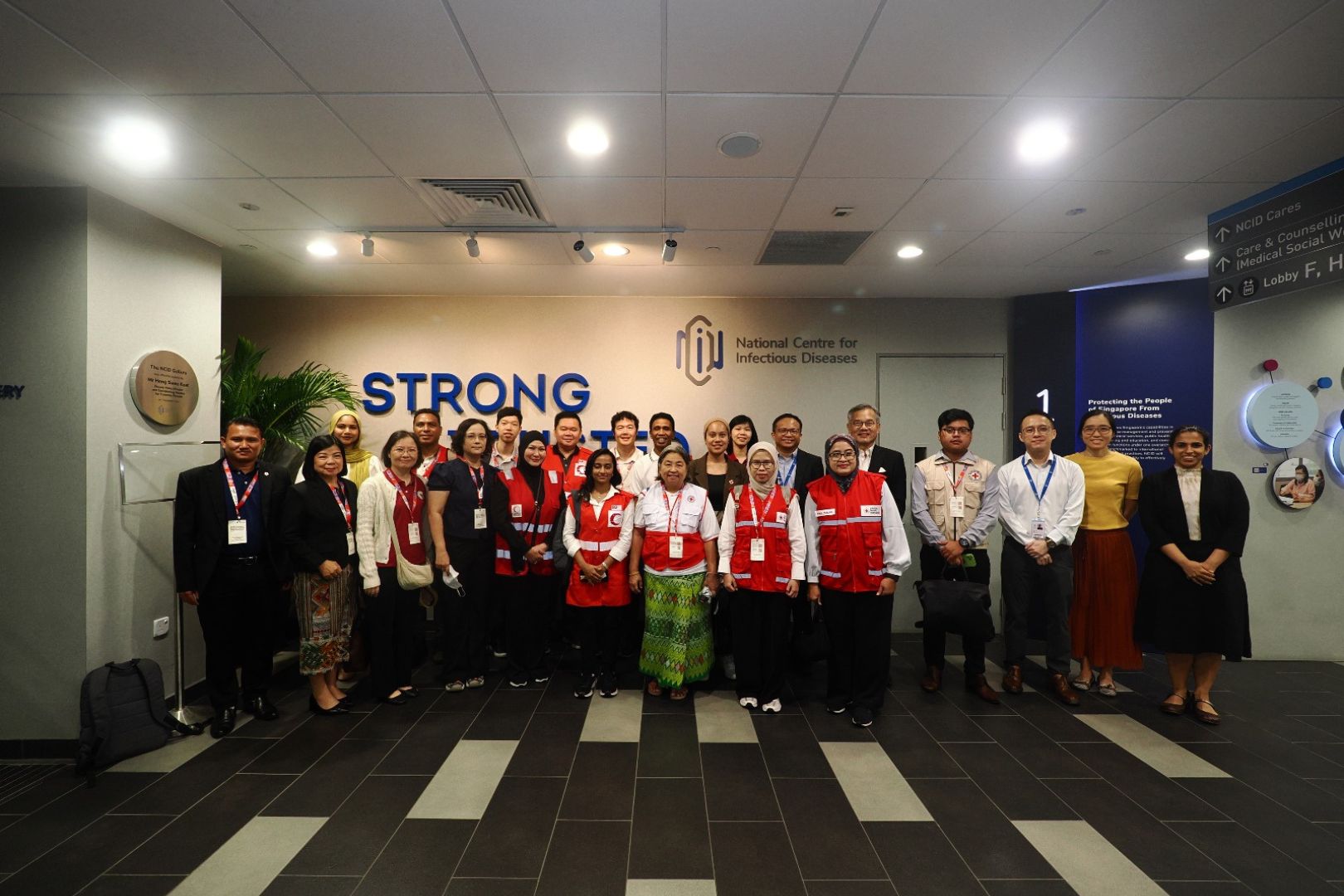
As a follow-up to our Pandemic Readiness Enhancement Program training series in 2023 and 2024, we hosted a three-day Friends of Centre of Excellence for Pandemic Preparedness Dialogue 2025 at the Red Cross House's Hall for Humanity to discuss future plans and collaborative strategies in building community resilience.
The Centre of Excellence for Pandemic Preparedness (CoEPP) was established by the Singapore Red Cross in 2019 to advance pandemic preparedness in Southeast Asia through capacity building, regional collaboration, and thought leadership.
Therefore, it was with great pleasure that we welcomed regional health focal points from eight Southeast Asian National Societies, from 20 to 22 May 2025, to the Red Cross House's Hall for Humanity to chart the future of pandemic preparedness.
Present were representatives from Brunei Darussalam Red Crescent, Indonesian Red Cross (PMI), Lao Red Cross, Malaysia Red Crescent, Myanmar Red Cross, Thai Red Cross, Timor-Leste Red Cross (CVTL), and Viet Nam Red Cross. These representatives form the regional network of CoEPP, as Friends of CoEPP.

Advancing Collective Action
During the Dialogue, participants re-examined their ongoing initiatives with fresh perspectives and discussed how these independent efforts by National Societies could be better supported and amplified through CoEPP as a unifying platform for regional pandemic preparedness. They shared best practices and practical experiences - from close collaboration with Ministries, IFRC, and Partner National Societies, to volunteer mobilisation through Community-Based Surveillance systems and digital innovations developed with local technology boards and universities to support marginalised communities. The Friends of CoEPP also reviewed their existing pandemic preparedness initiatives against CoEPP’s Pandemic Preparedness Profile to identify areas of strength and improvement.
A significant focus was placed on exploring avenues for regional fundraising and diversifying resource-building approaches to facilitate preparedness initiatives. This included a presentation by Professor Paul Tambyah from the National University Hospital, which provided cutting-edge insights into current infectious disease trends and preparedness strategies as well as a segment by the Timor-Leste Red Cross and Thai Red Cross to capacity building efforts in enhancing auxiliary roles, and innovative strategies in pandemic preparedness, respectively

Learning Through Experience
The programme culminated with an experiential site visit to Singapore's National Centre for Infectious Diseases (NCID), where participants deepened their understanding of how Singapore prepares for and responds to outbreaks. This hands-on learning experience allowed participants to observe best practices in infectious disease management and explore how these approaches might be tailored for different resource settings and national contexts across Southeast Asia.

Shaping the Future
The rich discussions and findings from this dialogue will directly inform the CoEPP work plan, establishing clear targets to strengthen National Society auxiliary roles, drive greater inter-National Society collaboration, and expand community-level engagement through webinars, joint-trainings, and resource-building innovations.
CoEPP drives preparedness from a bottom-up approach, working collectively through the Red Cross Red Crescent Movement's access to communities to strengthen community resilience and readiness in managing disease outbreaks of varying scales. Southeast Asia remains at the centre of global attention regarding emerging infectious diseases due to its diversity and dynamic landscape of rapid social, environmental and demographic change.
It is through this localised, inclusive, and sustained investment in preparedness that Southeast Asia can stand ready – before the next crisis strikes.
Photos by Allan Tee and Patrick Xu, volunteer photographers

